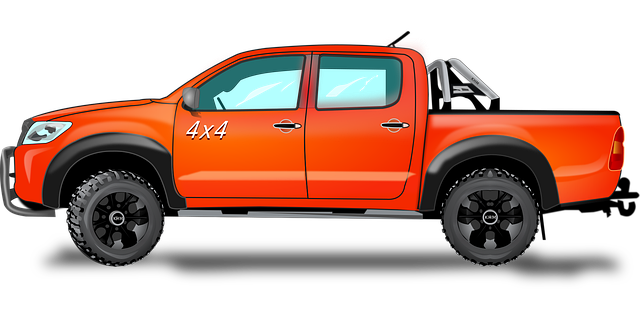RGV (Racing Genuine Vinyl) wheels, known for their lightweight design and aesthetic appeal, significantly enhance braking performance in high-performance vehicles. Brake calipers, crucial for stopping wheels, come in fixed or floating types. Floating calipers, common in modern cars with RGV wheels, offer better heat dissipation and even pad wear. Regular maintenance, including pad replacement, hardware inspection, and fluid checks, is vital to ensure optimal braking performance and safety while using RGV wheels. Any unusual noises or pulling during braking should be immediately addressed by a professional mechanic.
Brake calipers are a critical component in any vehicle’s braking system, squeezing and gripping rotor discs to slow or stop movement. This article delves into the world of brake calipers, exploring their function, various types, and how high-performance RGV wheels can impact caliper performance. We’ll also provide essential maintenance and troubleshooting tips to ensure optimal braking safety and efficiency. Understanding these key aspects is crucial for any vehicle owner looking to maximize their brakes’ potential, especially when considering the influence of top-tier RGV wheels.
- Understanding Brake Calipers: Function and Types
- RGV Wheels and Their Impact on Caliper Performance
- Maintenance and Troubleshooting Tips for Optimal Braking
Understanding Brake Calipers: Function and Types

Brake calipers are a crucial component in a vehicle’s braking system, playing a vital role in slowing or stopping the rotation of wheels, such as those made by RGV Wheels. They work by clamping down on the brake pads, which press against the rotating rim, converting kinetic energy into heat through friction. Understanding how calipers function and knowing their different types is essential for maintaining optimal vehicle performance and safety.
There are two primary types of brake calipers: fixed and floating. Fixed calipers, as the name suggests, remain stationary while applying pressure to the pads. In contrast, floating calipers move inwards and outwards, engaging with the pads from a pivot point. Floating calipers are more common in modern vehicles, offering enhanced braking performance due to their ability to dissipate heat more efficiently and provide consistent pad wear.
RGV Wheels and Their Impact on Caliper Performance

RGV (Racing Genuine Vinyl) wheels are a popular choice among car enthusiasts and performance drivers due to their lightweight construction and sleek design. These high-performance wheels can significantly impact the overall braking system, including caliper performance. When equipped with RGV wheels, brake calipers benefit from reduced rotational mass, leading to faster response times and increased stopping power. The lightweight nature of these wheels allows for quicker acceleration during braking, ensuring drivers have enhanced control and precision when bringing their vehicles to a stop.
Additionally, the aesthetic appeal of RGV wheels can complement the overall look of a vehicle, especially in sports or high-performance cars. This visual enhancement, coupled with improved caliper performance, creates a well-rounded driving experience. As such, when considering upgrades, many drivers turn to RGV wheels for both their practical advantages and style.
Maintenance and Troubleshooting Tips for Optimal Braking

Regular maintenance is key to ensuring your brake calipers function optimally, especially for high-performance vehicles like those with RGV wheels. Check and replace brake pads at recommended intervals; worn or damaged pads can affect braking efficiency and safety. Inspect caliper pins, boots, and hardware for signs of wear or damage, as these components play a crucial role in the caliper’s operation. Cleaning and lubricating these parts according to the vehicle’s service manual can prevent premature failure and maintain consistent braking performance.
Troubleshooting any issues should start with observing unusual noises or pulling during braking. If your RGV wheels exhibit pulsing or vibrational issues, it might indicate contaminated brake fluid or misaligned calipers. Check for fluid leaks and top up as needed; old or contaminated fluid can reduce braking effectiveness. For persistent problems, consult a professional mechanic to diagnose and address any mechanical failures, ensuring your safety on the road.
Brake calipers, an integral part of a vehicle’s braking system, play a crucial role in ensuring safe and efficient stopping. Understanding their function and various types, along with the influence of RGV wheels on performance, is essential for optimal braking. Regular maintenance and prompt troubleshooting are key to keeping these components in top shape, especially when considering the impact of high-performance wheels like RGVs. By following simple care tips, drivers can maximize braking efficiency, enhancing overall vehicle safety.
